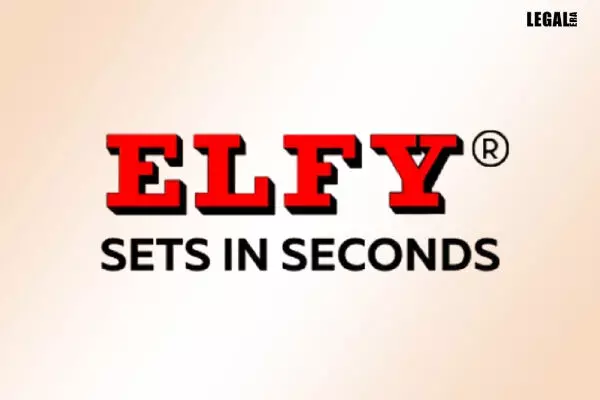- Home
- News
- Articles+
- Aerospace
- Artificial Intelligence
- Agriculture
- Alternate Dispute Resolution
- Arbitration & Mediation
- Banking and Finance
- Bankruptcy
- Book Review
- Bribery & Corruption
- Commercial Litigation
- Competition Law
- Conference Reports
- Consumer Products
- Contract
- Corporate Governance
- Corporate Law
- Covid-19
- Cryptocurrency
- Cybersecurity
- Data Protection
- Defence
- Digital Economy
- E-commerce
- Employment Law
- Energy and Natural Resources
- Entertainment and Sports Law
- Environmental Law
- Environmental, Social, and Governance
- Foreign Direct Investment
- Food and Beverage
- Gaming
- Health Care
- IBC Diaries
- In Focus
- Inclusion & Diversity
- Insurance Law
- Intellectual Property
- International Law
- IP & Tech Era
- Know the Law
- Labour Laws
- Law & Policy and Regulation
- Litigation
- Litigation Funding
- Manufacturing
- Mergers & Acquisitions
- NFTs
- Privacy
- Private Equity
- Project Finance
- Real Estate
- Risk and Compliance
- Student Corner
- Take On Board
- Tax
- Technology Media and Telecom
- Tributes
- Viewpoint
- Zoom In
- Law Firms
- In-House
- Rankings
- E-Magazine
- Legal Era TV
- Events
- Middle East
- Africa
- News
- Articles
- Aerospace
- Artificial Intelligence
- Agriculture
- Alternate Dispute Resolution
- Arbitration & Mediation
- Banking and Finance
- Bankruptcy
- Book Review
- Bribery & Corruption
- Commercial Litigation
- Competition Law
- Conference Reports
- Consumer Products
- Contract
- Corporate Governance
- Corporate Law
- Covid-19
- Cryptocurrency
- Cybersecurity
- Data Protection
- Defence
- Digital Economy
- E-commerce
- Employment Law
- Energy and Natural Resources
- Entertainment and Sports Law
- Environmental Law
- Environmental, Social, and Governance
- Foreign Direct Investment
- Food and Beverage
- Gaming
- Health Care
- IBC Diaries
- In Focus
- Inclusion & Diversity
- Insurance Law
- Intellectual Property
- International Law
- IP & Tech Era
- Know the Law
- Labour Laws
- Law & Policy and Regulation
- Litigation
- Litigation Funding
- Manufacturing
- Mergers & Acquisitions
- NFTs
- Privacy
- Private Equity
- Project Finance
- Real Estate
- Risk and Compliance
- Student Corner
- Take On Board
- Tax
- Technology Media and Telecom
- Tributes
- Viewpoint
- Zoom In
- Law Firms
- In-House
- Rankings
- E-Magazine
- Legal Era TV
- Events
- Middle East
- Africa
Indian Businessman Secures Trademark Relief In 'ELFY' Dispute With Pakistani National Introduction

Indian Businessman Secures Trademark Relief In 'ELFY' Dispute With Pakistani National
Introduction
The Delhi High Court grants relief to an Indian businessman in a trademark dispute with a Pakistani national over the use of 'ELFY' as a trademark. The Presiding Judge, Justice Saurabh Banerjee on May 6 set aside a 2012 order of the Intellectual Property Appellate Board (IPAB) that had directed removal of the trademark registration favoring Indian manufacturer Vidya Bhushan Jain.
Factual Background
Mohammed Younus Sheikh, a Pakistani national, had claimed that his company had been using the “ELFY” mark for industrial adhesives since 1981. He accused the plaintiff of dishonestly adopting the mark and logo — a baby elephant hanging from an arrow in an attempt to misappropriate his company's goodwill. The plaintiff had obtained trademark registration for the mark in 1988.
Procedural Background
The IPAB accepted the defendant’s claim and ruled that the plaintiff failed to prove prior and continuous use of the mark, ordering its removal from the register. The plaintiff moved the High Court, which granted a renewal of the trademark for a further period of 10 years, subject to the final outcome of the case. In May 2017, Jain's counsel submitted that his trademark registration was valid only until August 27, 2017, and he would lose the rights over it if he was not allowed to renew it. The trademarks registry had declined to accept his renewal application due to the pendency of the case. After the issue was raised in the Court, Jain was granted a renewal of the trademark until August 27, 2027
Issues Involved
1. Trademark Registration: Whether the plaintiff’s trademark registration was valid and should be allowed to subsist.
2. Prior Use: Whether the defendant had prior use of the 'ELFY' mark and logo.
Submissions of the Parties
Plaintiff’s Contentions: Jain's business partners argued that the trademark registration was valid and should be allowed to subsist. They claimed that the plaintiff had used the mark since 1988.
Defendant's Contentions: The defendant claimed that he had been using the 'ELFY' mark since 1981 and that the plaintiff had dishonestly adopted the mark.
Reasoning and Analysis
The court held that the plaintiff had remained unrepresented since July 2019 despite repeated directions for fresh service. The court proceeded ex-parte and agreed with the submission made by the trademarks registry that the petition had become infructuous since the mark had already been renewed until August 27, 2027.
Final Decision
The court set aside the IPAB's 2012 rectification order and disposed of the writ petition, allowing the trademark registration to subsist.
Law Settled
This judgment showcases the importance of trademark registration and renewal. The court's decision emphasizes the need for parties to diligently pursue their claims and respond to court directions.
In this case the plaintiff was represented by Mr.Kunal Khanna, Mr.Krtin Bhasin, Mr.Prakhar Sharma and Mr.Praveer Sharma, Advocates.



